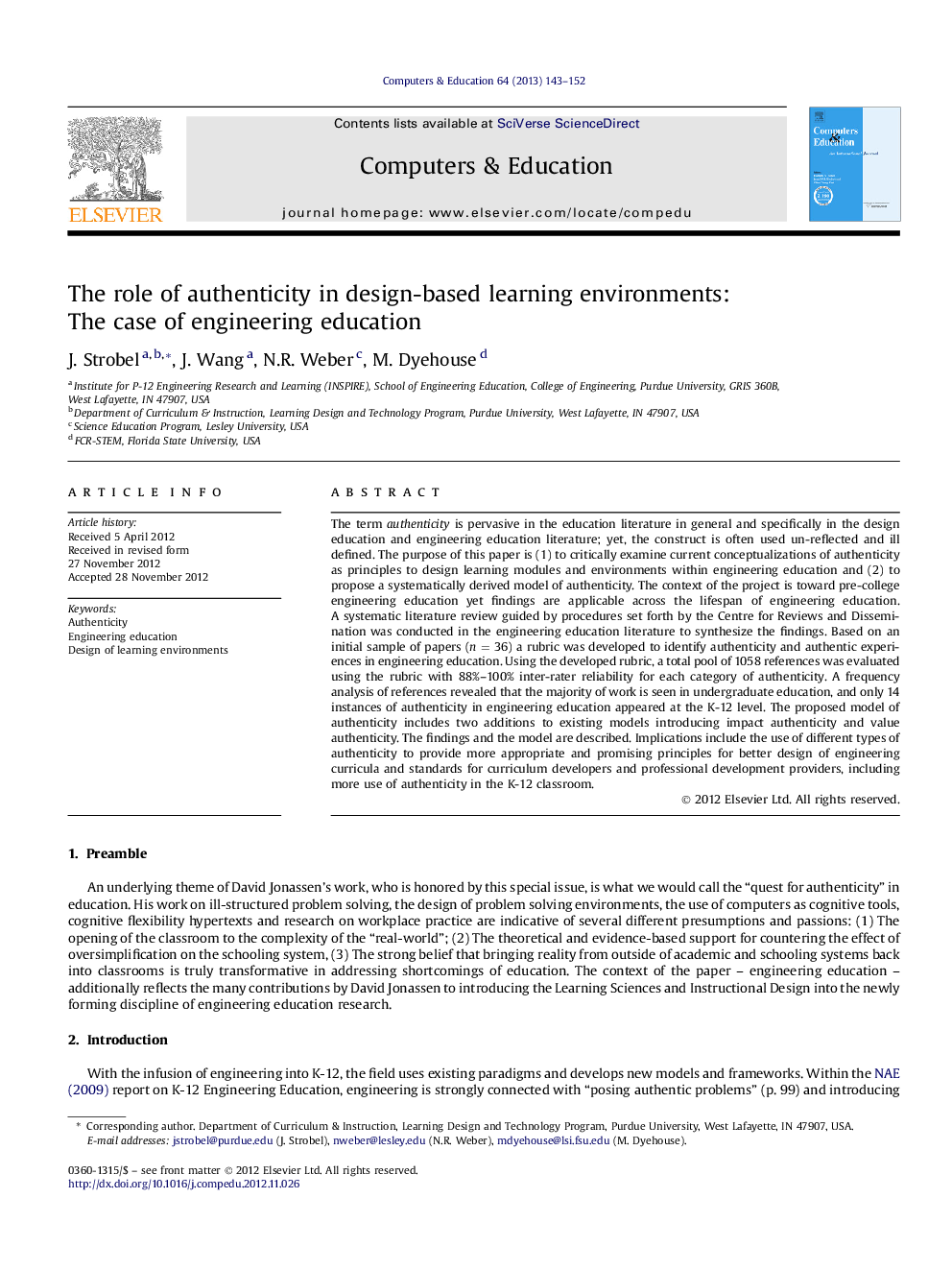| Article ID | Journal | Published Year | Pages | File Type |
|---|---|---|---|---|
| 348596 | Computers & Education | 2013 | 10 Pages |
The term authenticity is pervasive in the education literature in general and specifically in the design education and engineering education literature; yet, the construct is often used un-reflected and ill defined. The purpose of this paper is (1) to critically examine current conceptualizations of authenticity as principles to design learning modules and environments within engineering education and (2) to propose a systematically derived model of authenticity. The context of the project is toward pre-college engineering education yet findings are applicable across the lifespan of engineering education. A systematic literature review guided by procedures set forth by the Centre for Reviews and Dissemination was conducted in the engineering education literature to synthesize the findings. Based on an initial sample of papers (n = 36) a rubric was developed to identify authenticity and authentic experiences in engineering education. Using the developed rubric, a total pool of 1058 references was evaluated using the rubric with 88%–100% inter-rater reliability for each category of authenticity. A frequency analysis of references revealed that the majority of work is seen in undergraduate education, and only 14 instances of authenticity in engineering education appeared at the K-12 level. The proposed model of authenticity includes two additions to existing models introducing impact authenticity and value authenticity. The findings and the model are described. Implications include the use of different types of authenticity to provide more appropriate and promising principles for better design of engineering curricula and standards for curriculum developers and professional development providers, including more use of authenticity in the K-12 classroom.
► We analyze literature in engineering education and how they conceptualize authenticity. ► We examine the presence of authenticity research in different grade level. ► We develop a data-driven model of authenticity.
